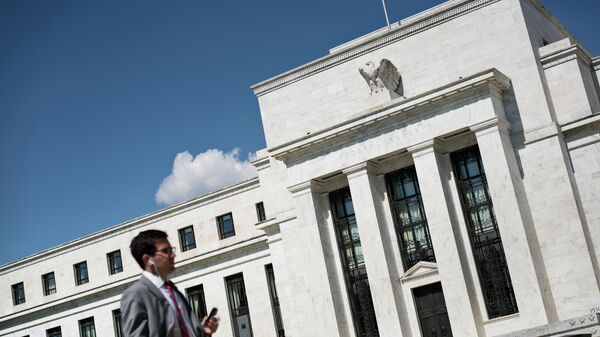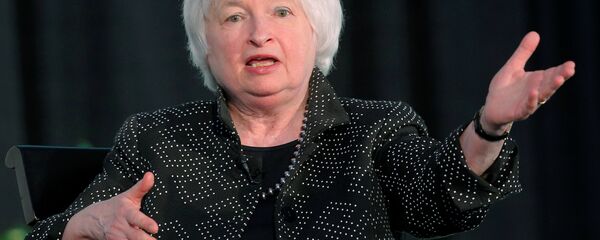Kristian Rouz – During her two-day Senate testimony which began Tuesday, Federal Reserve Chair Janet Yellen expressed her optimism regarding US economic prospects, citing increases in household disposable incomes and improvements in consumer sentiment as supporting a further tightening of monetary conditions. Yellen’s commentary stirred cheering on Wall Street, with Goldman Sachs stock beating its pre-crisis record high.
“Waiting too long to remove accommodation would be unwise, potentially requiring the FOMC to eventually raise rates rapidly, which could risk disrupting financial markets and pushing the economy into recession,” Yellen said.
The chances of a March interest rate hike increased following Yellen’s remarks, to 34pc in futures traders’ estimates, while the odds of three interest rate increases this year are still below 50pc. Market participants tend to trust the Fed’s earlier announcements of only two rises in base borrowing costs in 2017.
Amid these expectations, the US banking sector will generate greater returns in the higher-rate environment; Goldman Sachs beat its 2007 record close on Wall Street in Monday’s trading. The bank’s executives have recently been appointed to high-ranking positions in the White House, including the new Treasury Secretary Steven Mnuchin, which is seen as an overall positive sign by the financial sector.
Yellen also provided advice to Senate Republicans on the planned fiscal stimulus, suggesting the increased governmental spending should be aimed to boost longer-term productivity rather than short-term broader growth. However, when asked for more details by one of the senators, she did not provide any.
“I’m not going to tell you that,” Yellen said, leaving it to the Treasury to design the fiscal accommodation.
That means the tax cuts and infrastructure spending might only start benefitting the US economy in 2Q18, while this year growth might be quite modest.



